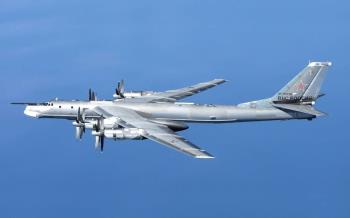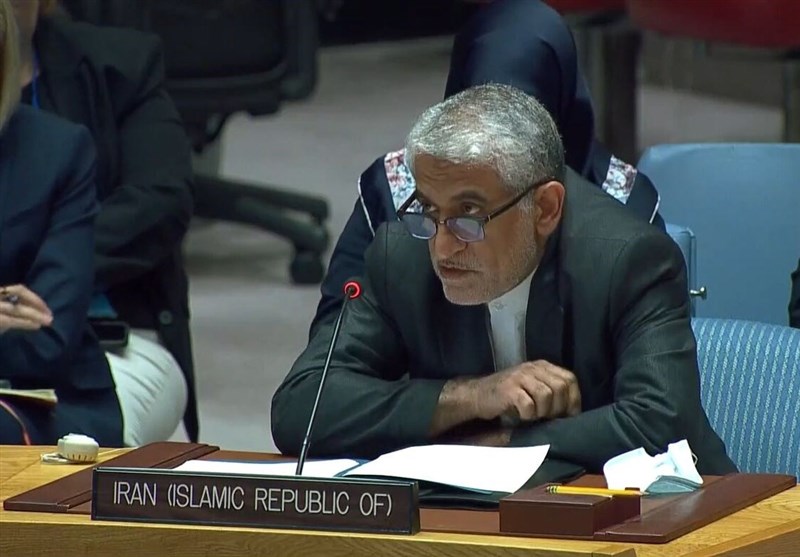Alwaght- Iran’s Ambassador and Permanent Representative to the United Nations has urged “constructive engagement” with the de facto Taliban government in Afghanistan.
Amir-Saeed Iravani made the remarks as he addressed a UN Security Council session on Wednesday that discussed the situation in Afghanistan.
Here is the full text of his speech at the Security Council meeting held in New York City:
Madam. President,
I thank UAE for convening this meeting. I also thank Ms. Otunbayeva, the Special Representative, for her briefing.
We note the Secretary-General’s report on the situation in Afghanistan (S/2023/453).
The report indicates that de-facto authorities have maintained internal stability and managed the Afghanistan economy. However, the magnitude of humanitarian needs in Afghanistan remains substantial and pervasive.
The seizure of Afghanistan's foreign assets and unilateral sanctions have significantly exacerbated the current situation, posing substantial external obstacles to effectively addressing the humanitarian situation in the country.
Madam. President,
Humanitarian aid must remain impartial and unconditional, ensuring that it reaches those in need without any interference from political or external factors.
It is crucial that the international community fulfill their humanitarian commitments and pledges, demonstrating solidarity and sympathy for the Afghan people and offering them hope and a path to a more stable and prosperous future.
Similarly, releasing frozen assets and lifting unilateral sanctions are vital for supporting and recovering Afghanistan’s economy.
Madam. President,
As a neighboring country with a long-shared border and hosting millions of Afghans, we are gravely concerned about the potential repercussions of the current situation on the security and stability of the entire region, especially for our neighboring countries.
Despite some relative improvements in security, the persistent presence of Daesh and Al-Qaida affiliates in Afghanistan, along with drug trafficking, continue to pose a significant and immediate threat not only to Afghanistan but also to neighboring countries and the entire region, as well as the international community at large.
According to a UN report, the ban on drug trafficking in Afghanistan has not been fully implemented, allowing the illicit trade of opium to continue across the country. Moreover, there is a growing concern regarding the spread of covert laboratories and locations involved in the production and trafficking of industrial substances like methamphetamine. The fact that some of these illicit activities spill across borders further exacerbates our concerns.
We support UNODC in its ongoing efforts to monitor opium cultivation in Afghanistan.
Madam. President,
Despite repeated international calls for an inclusive government, the de-facto authorities have made no progress towards genuine ethnic and political inclusion. Instead, they have imposed ever-severer restrictions and limitations on Afghan women and girls, severely limiting their access to education.
There are also concerns that de-facto authorities are deliberately attempting to erode Afghans' cultural, linguistic, and historical ties to the Farsi language, while also attempting to exert Pashtun culture's dominance over other ethnic groups and alter the demographic structure of Hazare and Tajik provinces.
These measures have negative consequences on Afghanistan’s stability and security and should be reversed to protect the basic human rights of all Afghan people.
Madam. President,
We reaffirm our unwavering support for the United Nations' ongoing efforts, including UNAMA, which are critical for ensuring peace and stability in Afghanistan, especially given the current situation.
In this context, Iran commends the Secretary General’s initiative held in Doha on the 1st and 2nd of May, which brought together Afghanistan's Special Envoys from concerned countries.
We extend our support for the upcoming second meeting on this initiative, and we remain hopeful that, under the UN leadership, the international community will continue to provide crucial humanitarian and developmental assistance to Afghanistan.
We welcome the appointment of Mr. Feridun Sinirlioğlu as the Special Coordinator entrusted with the crucial task of conducting an independent assessment on Afghanistan. We are ready to collaborate closely with him in fulfilling his mandate.
In conclusion, Madam. President, we would like to emphasize that we need to cooperate collectively to aid Afghanistan in rebuilding its economy and establishing favorable conditions for the people as well as for the safe return of Afghan refugees.
While acknowledging the Taliban's failure to fully meet their commitments, we must maintain our constructive engagement with the de facto authorities through UNAMA to pursue the best possible outcomes for the people of Afghanistan and the broader international community.
This approach benefits everyone: The Afghan people, the neighbors, the entire region, and the international community. Considering the lessons learned from past experiences of Taliban isolation, it is vital that Afghanistan does not suffer a similar fate.
Iran remains committed to close collaboration with other neighbors, relevant partners, and the UN to help bring durable peace, security, and stability to Afghanistan.
I thank you.



























